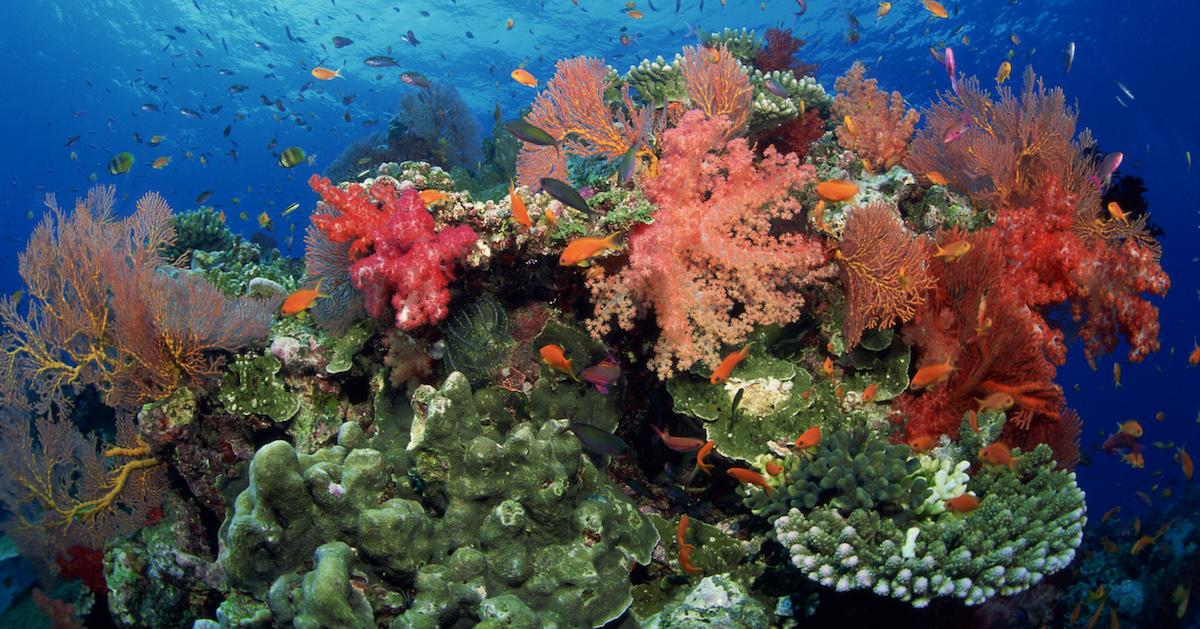Study Finds Earth Is On the Verge of Hitting Five Climate Tipping Points — but "There Are Grounds for Hope"
Published Sept. 9 2022, 12:01 p.m. ET

Climate scientists have been warning us for years: If we do not take significant climate action, humanity is in danger. And, according to a new study, we are already on the verge of hitting five of the tipping points of climate change, with more tipping points likely if global warming continues to increase.
What exactly are climate tipping points, and what must be done to prevent Earth from reaching them?
What are tipping points of climate change, exactly?
The new study defines climate tipping points (CTPs) as “conditions beyond which changes in a part of the climate system become self-perpetuating … beyond a warming threshold.”
As these changes occur, it’s likely that they will set off “abrupt, irreversible, and dangerous” effects that could have dire consequences for humanity.

Coral reefs will continue die off as global heating worsens.
A new study explores which climate tipping points we are already hitting, and which we will hit soon.
Researchers from Sweden, the U.K., Germany, and the Netherlands published their research in the journal Science on Sept. 9, 2022.
For this new study, they looked at nine policy-relevant “climate tipping elements and their potential tipping points,” which were originally identified in a 2008 study. They then reassessed all nine tipping elements, their climate tipping points, and what would happen if these tipping points were reached.
According to the study, the current global warming is already about 1.1 degree Celsius above pre-industrial levels — inching us closer and closer to the 1.5-degree Celsius threshold as dictated by the Paris Agreement.
And the warming we have experienced so far means we are on the verge of hitting five climate tipping points. If we hit the Paris Agreement’s 1.5-degree Celsius mark, the researchers believe six more CTPs become likely, and four become possible.
Here are a few examples of climate tipping points.
The study found that some of the tipping points we are already in the lower end of include: sudden and extensive permafrost thaw (triggering carbon release), the collapse of the Greenland and West Antarctic ice sheets (triggering sea level rise and coastal flooding), the death of the Amazon rainforest, and the death of low-latitude coral reefs.
The researchers also looked at what would happen if the global average temperature increases even more than by 1.5 degrees Celsius (which it is already on track to do), and found that we would hit even more climate tipping points.
Other common examples of climate tipping points include a boreal forest shift (which would trigger northern tundras growing and southern tundras dying), and a West African monsoon shift (which would trigger changes in rainfall, and changes to ecosystems and agriculture), as per Carbon Brief.
How to stop climate tipping points:
The key to stopping us from reaching these CTPs is to halt the activities humans do that contribute to the most emissions and global heating, such as extracting and burning fossil fuels, mass animal agriculture, and deforestation.
“This finding provides a compelling reason to limit additional warming as much as possible,” the study concluded.
“This sets Earth on course to cross multiple dangerous tipping points that will be disastrous for people across the world,” stated co-author Professor Johan Rockström, as per The Guardian. “To maintain liveable conditions on Earth and enable stable societies, we must do everything possible to prevent crossing tipping points.”
Lead author Dr. David Armstrong McKay believes that this study shows that there are "grounds for grief, but there are also still grounds for hope," as he told The Guardian.
“The study really underpins why the Paris agreement goal of 1.5 degrees Celsius is so important and must be fought for,” he added. With so much at stake, there’s no time to waste.